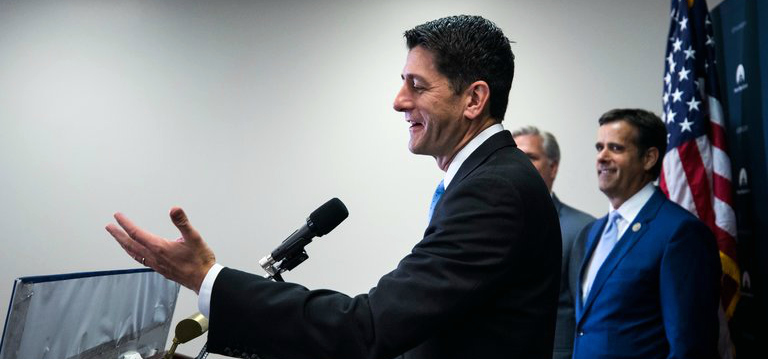by Dean Baker
The New York Times is again spreading the absurd myth that House Speaker Paul Ryan and other Republicans want a free market in healthcare. While it is very helpful to the Republicans to imply that they are trying to advance some grand principle, as opposed to just giving money to rich people, it is a lie on a par with climate denialism.
There are no government-granted patent monopolies in a free market. As a result of these government-granted monopolies, we will pay more than $440 billion for prescription drugs this year. These drugs would likely cost less than $80 billion in a free market. The difference of more than $360 billion a year is a bit less than 2 percent of GDP, more than seven times as much money as is at stake in the Republicans’ proposed Medicaid cuts. (Those cuts cover a decade, this is a single-year figure.)
The same story applies to medical equipment. MRIs are cheap without patent protection.
It is possible to argue for the merits of government granted monopolies (I argue against them in chapter 5 of my book Rigged—it’s free!), but it is not possible to deny that these monopolies are a government policy, not the free market. Paul Ryan has never indicated any opposition to government-granted patent monopolies.
Similarly, we pay our doctors twice as much as their counterparts in other rich countries, costing us more than $80 billion a year in higher healthcare costs. This is due to the protectionist barriers enjoyed by our doctors, which protect them from both foreign and domestic competition. (This is covered in chapter 7 of Rigged.) Paul Ryan has never indicated a desire to remove the protectionist barriers that allow many doctors to reach the top 1 percent of income earners.
The government also privileges insurance contracts in many ways, compared with other contracts. For example, with insurance contracts, not disclosing relevant information can often void the contract. By contrast, with most contracts, the parties to the contract are responsible for learning relevant information themselves. Ryan has not indicated any desire to reverse this privileged position for insurance contracts.
It is very generous of the New York Times to pretend that the Republicans are motivated by some sort of principle in their efforts to repeal the ACA, but the claim is absurd on its face. It does not deserve to be treated seriously; the repeal is about giving more money to rich people, end of story.
A version of this post originally appeared on CEPR’s blog Beat the Press(7/10/17).
You can send a message to the New York Times at letters@nytimes.com(Twitter:@NYTimes). Please remember that respectful communication is the most effective.

